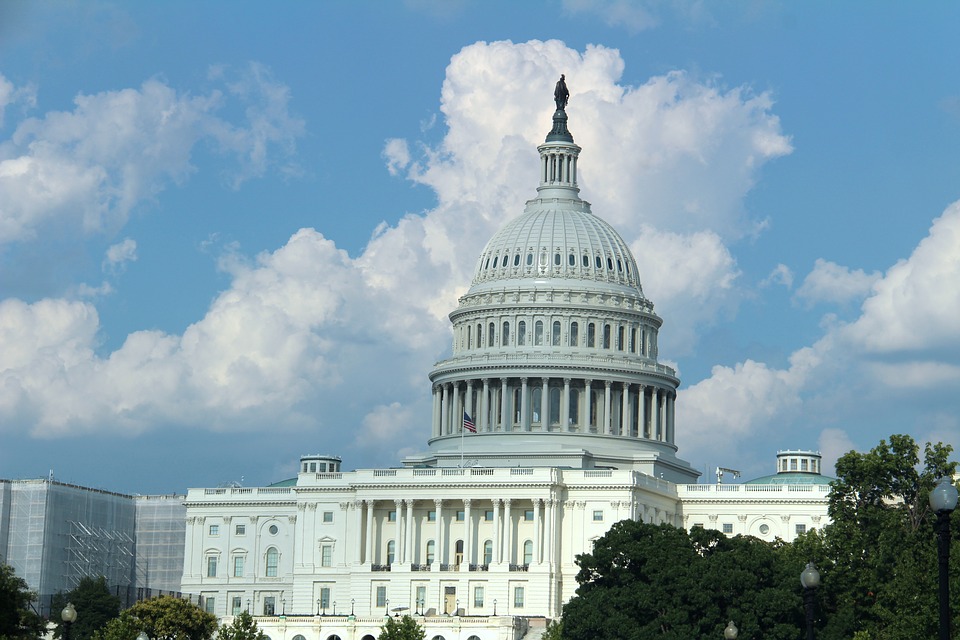On October 1, 2025, the U.S. federal government entered a shutdown after Congress failed to enact appropriation bills for the fiscal year beginning October 1. As of this writing, hundreds of thousands of federal workers are being furloughed, many others are working without pay, and government contractors are navigating serious disruptions.
This blog breaks down how the 2025 government shutdown affects federal workers and contractors—covering furloughs, delayed pay, contract suspensions, potential layoffs, and the legal steps you can take right now to protect your rights.
The Spiggle Law Firm has experience representing clients in federal employment disputes and private-sector employment law. If you or your organization needs legal counsel during or after a shutdown, we’re here to help.
The Government Shutdown Is Here — What It Means for You
The 2025 government shutdown officially began on October 1 after Congress failed to reach a deal to fund federal agencies for the new fiscal year.
While the political blame game dominates the news, the real impact is being felt by everyday workers — the federal employees and contractors now struggling with missed paychecks, frozen contracts, and job uncertainty.
If you work for the federal government or a contractor that depends on it, you’re likely asking questions like:
- Will I get paid?
- Can my agency fire me?
- What happens to my benefits?
- If I’m a contractor, how do I handle a contract pause or lost income?
This article breaks down what’s happening, what your legal rights are, and what you should do next to protect yourself.
Federal Employees: Furloughs, Pay Delays, and Job Security
When a shutdown begins, federal employees are divided into two categories.
Excepted employees — those whose jobs are considered essential for safety or national security — must keep working without pay. Non-excepted employees, on the other hand, are placed on furlough and told to stay home until funding returns.
Current estimates suggest that roughly 750,000 to 900,000 federal workers are impacted. Agencies like the Department of Health and Human Services and the Federal Aviation Administration have announced significant furloughs, affecting tens of thousands of workers.
The good news is that under the Government Employee Fair Treatment Act of 2019, both furloughed and excepted employees are entitled to full back pay once Congress approves funding. The bad news? That back pay could take weeks or months to arrive — and many workers can’t afford to wait that long.
Adding to the stress, this year’s shutdown has raised fears of permanent layoffs. The administration has reportedly asked agencies to prepare reduction-in-force (RIF) plans — essentially blueprints for potential long-term job cuts. Several federal unions have already filed lawsuits, arguing that such layoffs during a funding lapse violate federal law.
If you receive a termination notice or suspect your rights are being violated, it’s important to speak with an employment attorney right away. Many federal employees have appeal rights under civil service laws that protect against unlawful or politically motivated firings.
Federal Employees: Furloughs, Pay Delays, and Job Security
When a shutdown begins, federal employees are divided into two categories.
Excepted employees — those whose jobs are considered essential for safety or national security — must keep working without pay. Non-excepted employees, on the other hand, are placed on furlough and told to stay home until funding returns.
Current estimates suggest that roughly 750,000 to 900,000 federal workers are impacted. Agencies like the Department of Health and Human Services and the Federal Aviation Administration have announced significant furloughs, affecting tens of thousands of workers.
The good news is that under the Government Employee Fair Treatment Act of 2019, both furloughed and excepted employees are entitled to full back pay once Congress approves funding. The bad news? That back pay could take weeks or months to arrive — and many workers can’t afford to wait that long.
Adding to the stress, this year’s shutdown has raised fears of permanent layoffs. The administration has reportedly asked agencies to prepare reduction-in-force (RIF) plans — essentially blueprints for potential long-term job cuts. Several federal unions have already filed lawsuits, arguing that such layoffs during a funding lapse violate federal law.
If you receive a termination notice or suspect your rights are being violated, it’s important to speak with an employment attorney right away. Many federal employees have appeal rights under civil service laws that protect against unlawful or politically motivated firings.
Contractors: The Hidden Casualties of a Shutdown
While federal employees will eventually receive back pay, contractors usually don’t. For the hundreds of thousands of workers employed by companies with government contracts, the shutdown can mean an abrupt loss of income and job insecurity.
Most agencies issue stop-work orders during a funding lapse, freezing projects and pausing payments. This means contractors can’t bill for work, and in many cases, employees are told to stay home — without pay and without any promise of back pay later.
If you’re a contractor or business owner supporting federal projects, this is the time to:
- Review your contracts for stop-work and termination clauses
- Document all financial losses and extra costs related to the shutdown
- Stay in contact with your contracting officer to understand next steps
- Consult legal counsel before taking actions like layoffs or schedule changes
Contractors should also be aware of their employment law obligations. If you have to furlough or lay off workers, you may be required to comply with the federal WARN Act or similar state laws, which mandate notice before mass layoffs. Wage and hour laws also still apply, meaning exempt employees generally can’t have their pay reduced for part of a week.
Common Legal Issues Arising During the Shutdown
Many of the legal problems caused by a government shutdown fall into a few key categories.
Delayed Paychecks:
Federal workers cannot be paid until the shutdown ends, but they are legally entitled to full back pay once Congress passes a funding bill.
Unlawful Terminations:
If an agency tries to permanently lay off employees during a funding lapse, those actions may violate the Antideficiency Act or civil service protections. Workers facing this situation should seek legal advice immediately.
Contractor Pay Issues:
Unlike federal employees, contractors are not guaranteed back pay. If your employer fails to pay you or handle furloughs correctly, you may have rights under wage and hour or employment laws.
WARN Act Violations:
Large employers must generally give 60 days’ notice before mass layoffs. If your employer cuts staff suddenly due to the shutdown, that could raise compliance concerns.
Loss of Benefits:
Extended furloughs and contract suspensions can affect eligibility for health coverage or other benefits. Employees should review their plan documents and seek guidance from HR or legal counsel if coverage is interrupted.
What You Can Do Right Now
Know Your Status.
Ask your agency whether you are “exempted” or “furloughed.” Contractors should confirm whether their projects are paused or ongoing.
Keep Records.
Document your furlough notice, hours worked, correspondence from your employer, and any financial losses related to the shutdown.
Review Your Benefits.
Check your health insurance and leave status, especially if the shutdown lasts more than a few weeks.
Seek Legal Advice Early.
If you’ve been laid off, denied pay, or believe your rights are being violated, consult an employment attorney as soon as possible. Timing matters — especially for back pay or wrongful termination claims.
Stay Informed.
Follow updates from your agency, union, or the Office of Personnel Management. Shutdowns can evolve quickly as negotiations continue in Congress.
Legal Context and Worker Protections
The Antideficiency Act prohibits agencies from spending money that hasn’t been appropriated by Congress. This is why many nonessential activities stop during a shutdown — agencies are legally barred from continuing them.
For federal employees, the Government Employee Fair Treatment Act of 2019 guarantees retroactive pay for both furloughed and working employees once the government reopens. However, contractors are not covered under this law and may need to pursue compensation through their employers or contract provisions.
If you believe your rights as a worker are being violated — such as being unfairly terminated, denied benefits, or pressured to work without proper classification — The Spiggle Law Firm can help you navigate your legal options.
The Bottom Line
Shutdowns are more than political theater — they have real human and financial consequences. Federal employees and contractors alike are bearing the weight of political gridlock, facing uncertainty through no fault of their own.
Whether you’re waiting for a paycheck, worried about your job, or trying to navigate a contract suspension, it’s important to know your rights and act quickly if something feels off.
If you’re a federal worker, contractor, or employee impacted by the shutdown, The Spiggle Law Firm can help you understand your legal options and advocate for your rights.
Contact us today to schedule a consultation and take the first step toward protecting your future.



